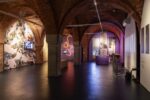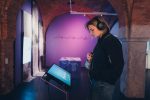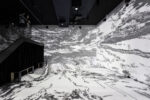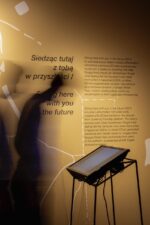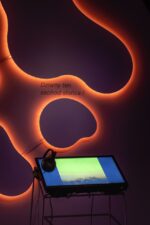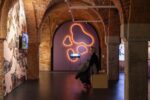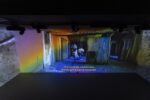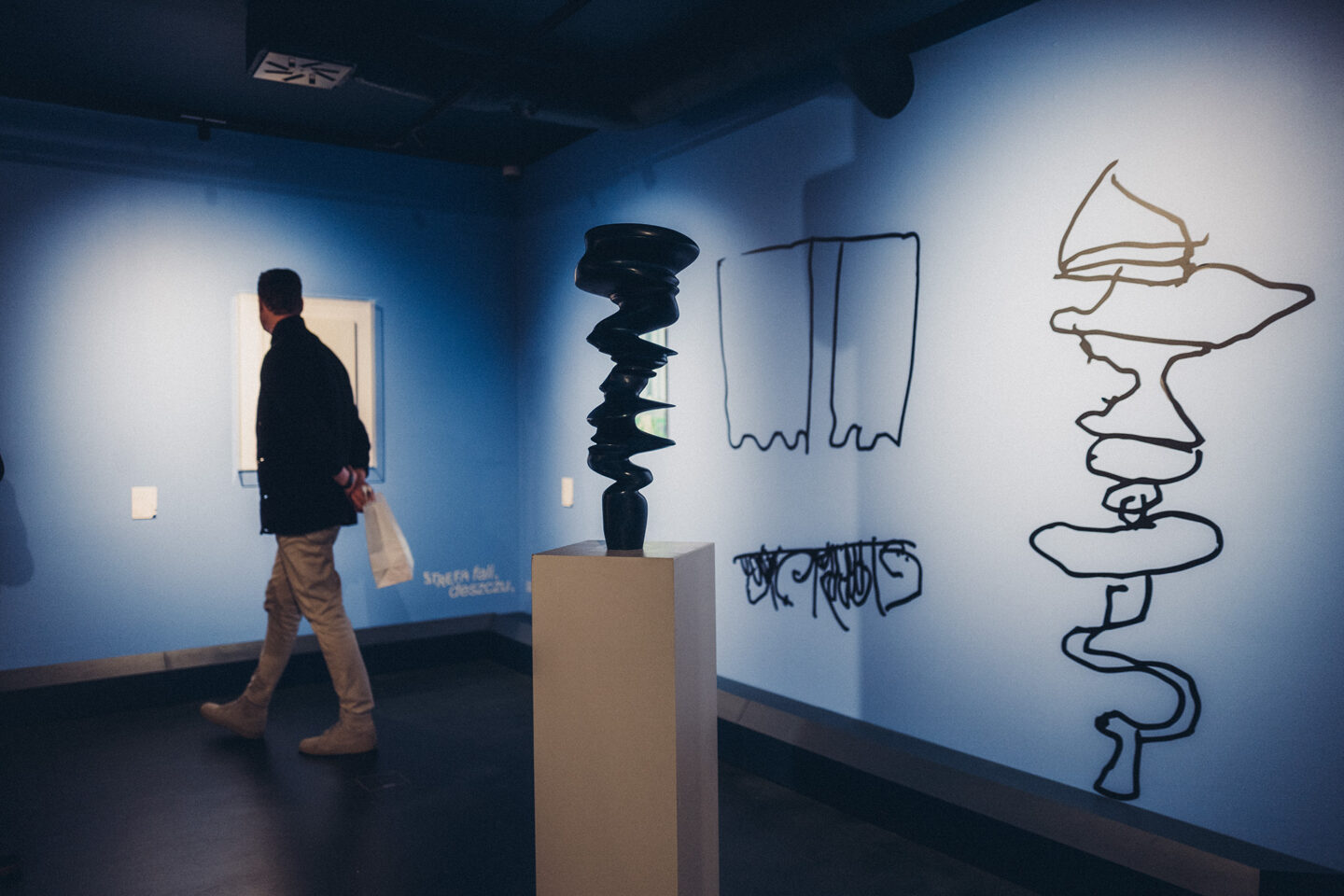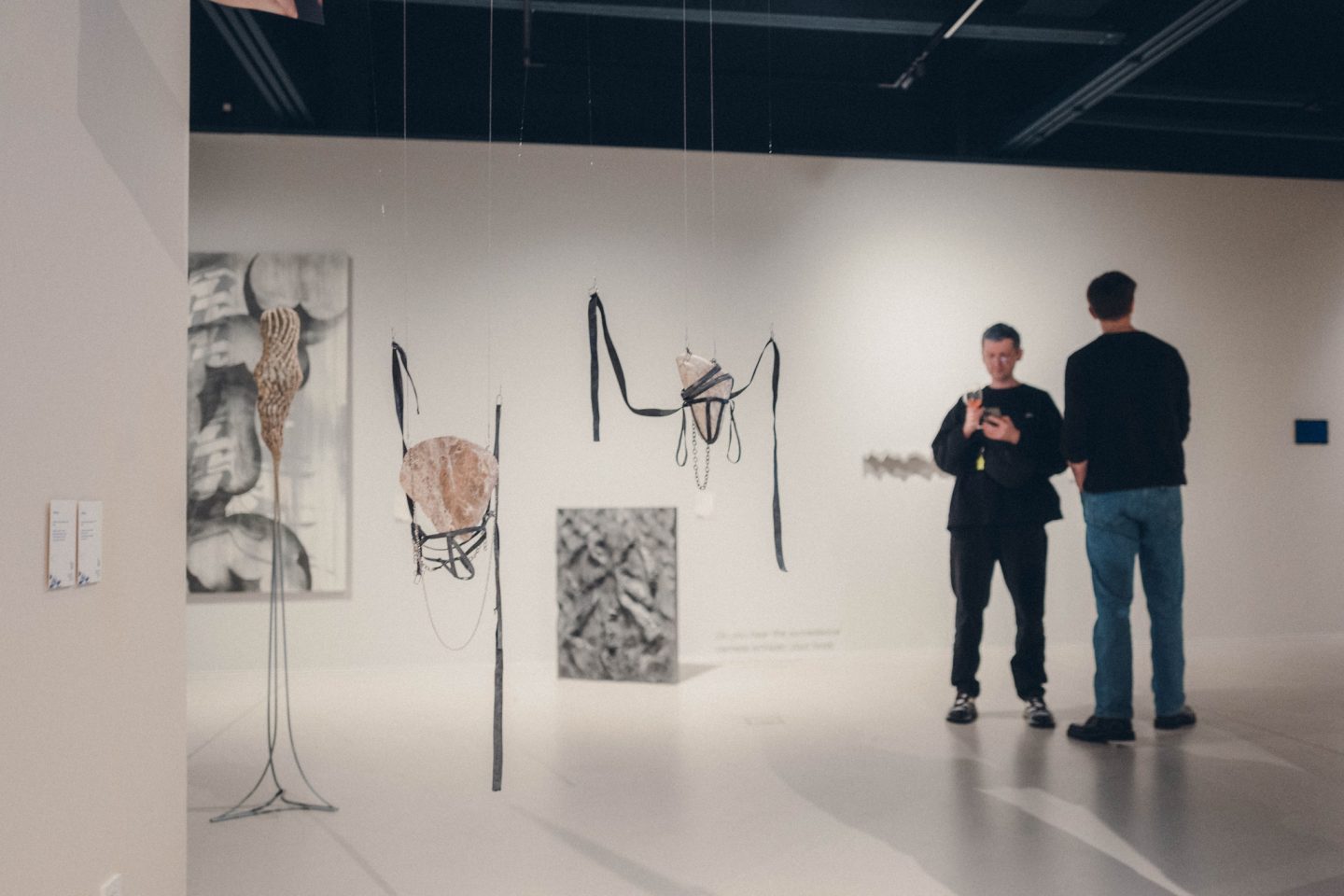Program
KAF
November 23, 2024 – March 2, 2025
Places of this kind are outside of all places, even though it may be possible to indicate their location in reality.
The exhibition explores the spatial relationships that define our contemporary reality. The places we inhabit exist in a perpetual state of movement, simultaneity, and mutual interpenetration. This applies equally to our physical geographical locations and the digital realms we occupy. As the spaces of our daily existence become increasingly fragmented, the horizon of our perception grows ever more indistinct.
The featured works seek to experimentally investigate these ephemeral and transient forms of habitation, with a particular emphasis on the role of pressures and oppression in the creation of alternative spaces. The artists reimagine the map as an interpretation of reality, offering perspectives rooted in queer and trans experiences, climate change, and places rendered inaccessible by acts of aggression.
Central to this exploration is an attention to data often dismissed as insignificant or excluded from traditional cartography and geoinformatics. The artistic narratives focus on alternative spaces discussed in humanist discourse, such as heterotopias (M. Foucault), non-places (M. Augé), and khôra (in Greek: “place”; or “region”). Derrida, following Plato, describes khôra as neither this nor that, yet simultaneously both – oscillating between exclusion and participation, emerging as if in a dream (J. Derrida, Khôra. On the Name).
In a similar vein, heterotopias, despite their identifiable physical or digital coordinates, always remain “elsewhere.” Foucault characterizes these spaces as those in which all other places within a given culture are simultaneously represented, contested, and inverted. According to the author of Of Other Spaces, every culture, without exception, generates its own heterotopias. These universal models of spatial relationships evolve in form and function according to their historical and social context. This is why efforts to describe and represent these spaces, particularly through artistic practice, reveal a fuller and more nuanced understanding of our reality.
The artists featured in this project experiment with collective memory, Google Street View, and AI. Through AI, the contemporary landscape acquires a transformed aesthetic, encouraging us to reflect on entirely new pathways that now emerge before us.
Artists: Kasra Goodarznezhad, Capatina Oxana Villi Mahnenco, Bogdan Postolachi, Lucas Larochelle, Maria Orciuoli
Curator: Monika Łuszpak-Skiba
Media patronage: Onet, Gazeta Wyborcza Wrocław


